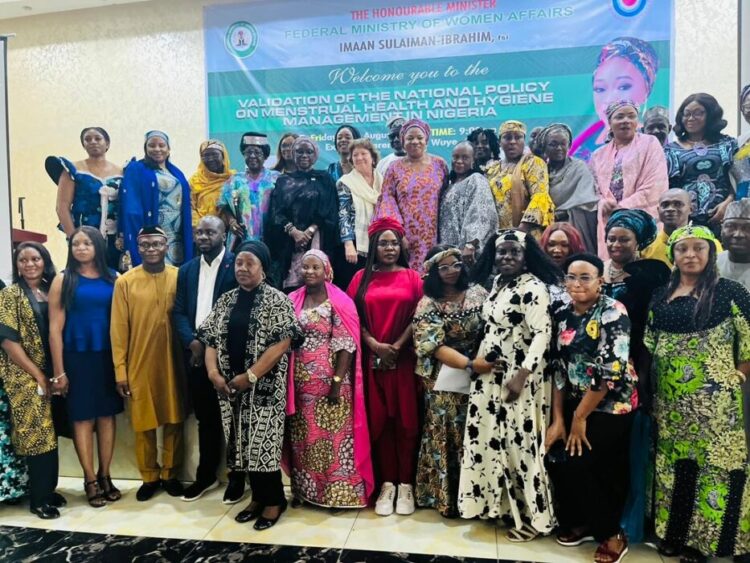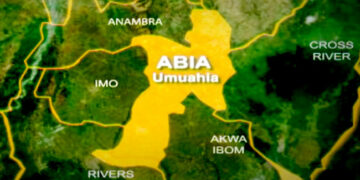The federal government has validated Nigeria’s first-ever National Policy on Menstrual Health and Hygiene Management (MHHM), a landmark step toward improving menstrual health for millions of women and girls across the country.
Speaking at the validation meeting in Abuja, the Minister of Women Affairs and Social Development, Imaan Sulaiman-Ibrahim, described the policy as a decisive step towards building a Nigeria where menstruation does not limit any woman or girl child.
Represented by the Permanent Secretary of the ministry, Maryam Ismaila Keshinro, the minister noted that women aged 15–49 constitute about 25–30 per cent of Nigeria’s population, meaning tens of millions of women and girls menstruate monthly.
“Alarmingly, 15 per cent of girls aged 15–19 are already mothers or pregnant, and over 7.3 million adolescent girls and women suffer from undernutrition, with 55 per cent affected by anemia; conditions that can be exacerbated by poor menstrual hygiene and lack of affordable sanitary products,” she said.
Mrs Sulaiman-Ibrahim stressed that menstrual health is not just a women’s issue but a family, community, and national development issue. She added that the policy is designed to break the silence, eliminate stigma, and embed menstrual health into Nigeria’s development agenda across health, education, water, sanitation, and gender sectors.
According to her, by 2030, no girl in Nigeria should have to choose between managing her menstruation and pursuing her education, and no woman should be held back in her personal or professional life because of menstruation.
The Acting Country Representative of Population Services International (PSI) Nigeria, Fifi Ogbondeminu, described the validation as a milestone in ensuring that menstruation is addressed with dignity, empathy, and urgency.
Represented by PSI’s Menstrual Health Initiatives Team Lead, Abdulhameed Adediran, she said: “Menstrual health is a human rights issue, a gender equality issue, and a development issue. Policies alone cannot change lives, but full implementation can.”
She added that PSI, through its Menstrual Health No Wahala (MH-NoW) programme, will continue to work with governments and communities to ensure access to low-cost menstrual products, integrate menstrual health into schools and community programmes, and empower girls to remain in education.
Also speaking, Country Director of WaterAid Nigeria, Evelyn Mere, represented by WaterAid’s Policy and Advocacy Manager, Theodora Ngouka, said the policy represents years of advocacy and the voices of Nigerian women and girls.
“This is not just a milestone but a powerful signal of commitment to the health, dignity, and empowerment of girls and women. When communities address menstrual health properly, girls stay in school, women participate fully at work, and stigma gives way to support,” she said.
Stakeholders at the event emphasised that political will, inter-sectoral collaboration, and strong community involvement will be critical to making the policy work.
They agreed that the policy must go beyond paper, ensuring availability of affordable sanitary products, improved WASH infrastructure, and nationwide awareness campaigns to eliminate stigma around menstruation.










